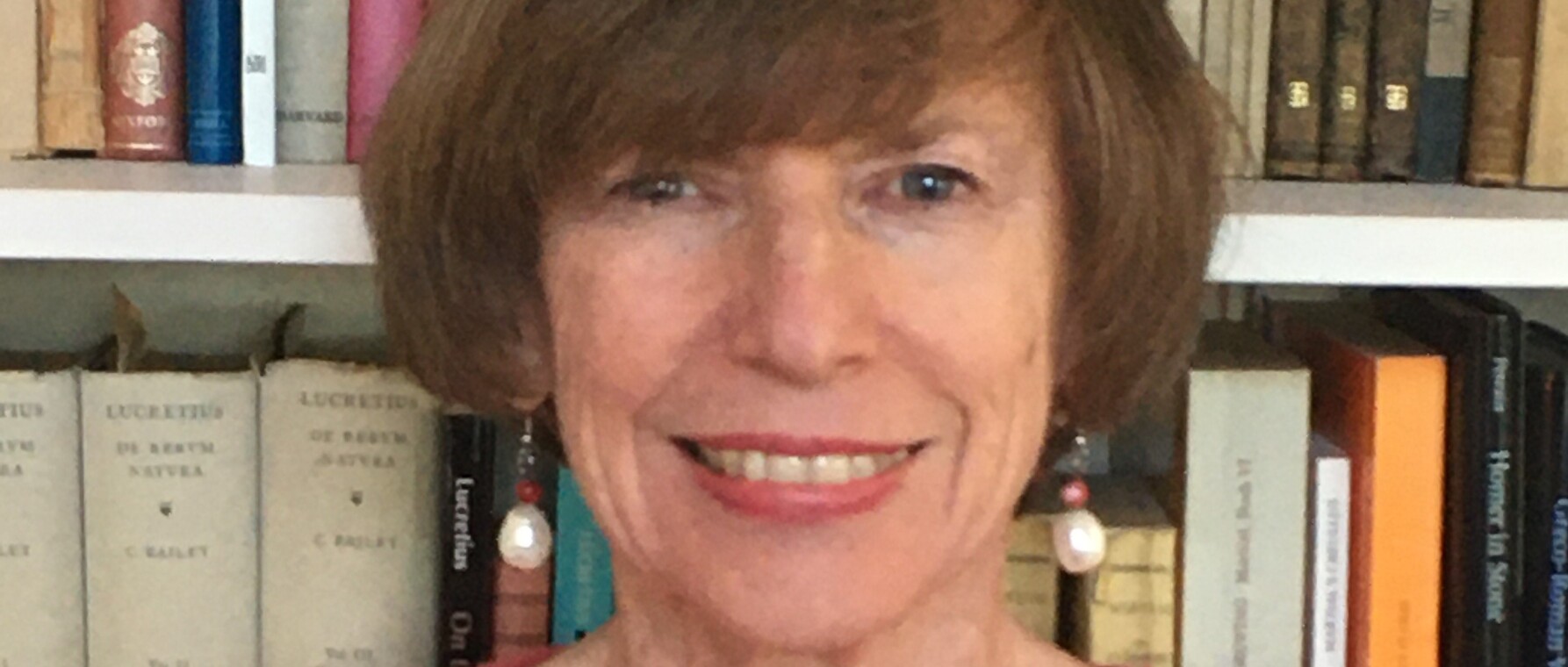Kathleen Coleman: A 2020 Mendelsohn Award Winner

At Harvard since 1998, Kathleen Coleman, James Loeb Professor of the Classics and senior research curator at the Harvard Art Museums, is one of the recent winners of the Everett Mendelsohn Excellence in Mentoring Awards, a student-led award that honors GSAS faculty for their excellence in mentorship. Read more about this year’s winners in “What Makes a Mentor Great.”
“I am thrilled,” says Coleman. “It’s tremendously affirming to be honored for mentoring. I feel that being a good advisor means I’m just doing my job. We have outstanding students, so it’s a huge inspiration to work with them.”
Coleman has known her primary nominator for the Award, James Zainaldin, PhD student in classics, since his second semester at Harvard back in 2015. During that spring term, she offered a graduate seminar on Roman gardens and referred to a Latin treatise on Roman fruit trees from the third century CE. Zainaldin was fascinated by this text and began to write a term paper on it, a project entirely separate from his now-completed dissertation on the emergence of Roman technical disciplines.
Fast forward several years, and with Coleman’s guidance and support, Zainaldin has recently published Gargilius Martialis: The Agricultural Fragments, the first full edition of the ancient scholar’s horticultural writings, accompanied by an English translation and full commentary (389 pp.). Coleman is beyond proud of Zainaldin’s accomplishment, but to him, he owes her a debt of gratitude.
“Kathy has been a transformative force in my experience as a graduate student,” says Zainaldin. “She has embodied the highest qualities of mentorship and made my experience as a PhD candidate what it was, from my very first year to the cusp of graduation.”
Having worked with Coleman over the last several years, Zainaldin has seen her extraordinary ability to provide help and support while fostering students’ independence.
“She’s always recalibrating the balance between sharing guidance when you need it and knowing when to step back,” says Zainaldin. “No matter where you are on that spectrum, you always feel her there as a supportive presence.”
As part of her advising practice, Coleman thinks it’s important to respect each student’s individual working style.
“Some students really benefit from regularity, and others flourish by spending longer on their own,” says Coleman. “One has to maintain a balance between a rigorous schedule and a flexible approach that is different for everyone.”
For Zainaldin, nominating Coleman for a Mendelsohn Award is an acknowledgement of the doors she has opened for him and the great advice he has received.
“The Mendelsohn Awards recognize a vital role of doctoral advisors that might not be appreciated otherwise,” says Zainaldin. “They put in a tremendous amount of work, and it can be absolutely life-changing for students—it’s a sustained, long-term relationship that focuses on professional development but extends to embrace students’ personal lives as well. Mentorship is one of the most significant things these professors do, and the Awards are a really important way to draw attention to that.”
Get the Latest Updates
Join Our Newsletter
Subscribe to Colloquy Podcast
Simplecast





